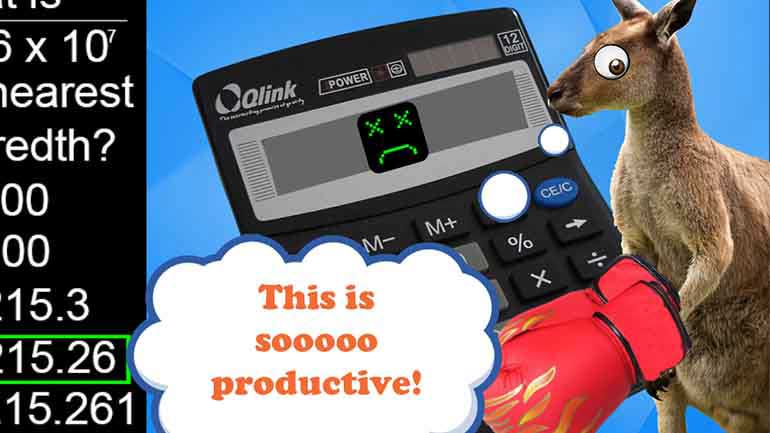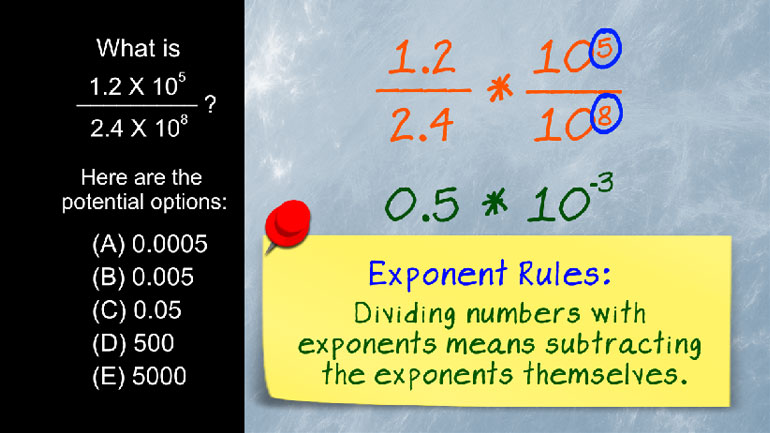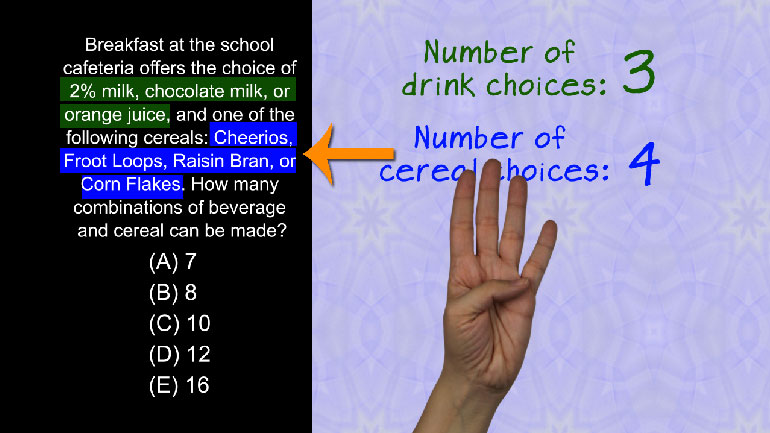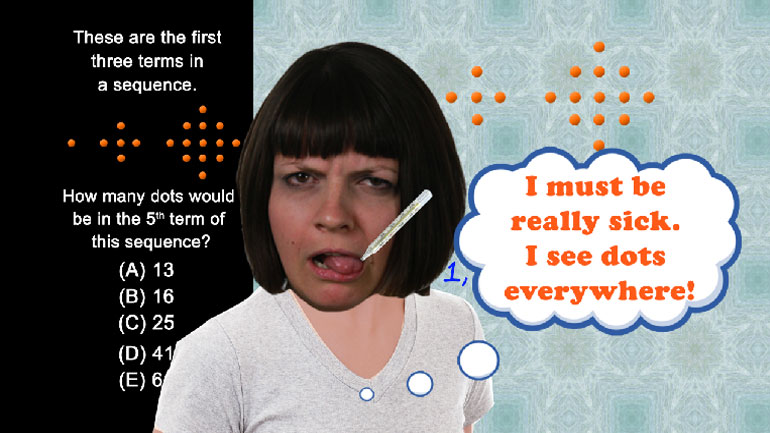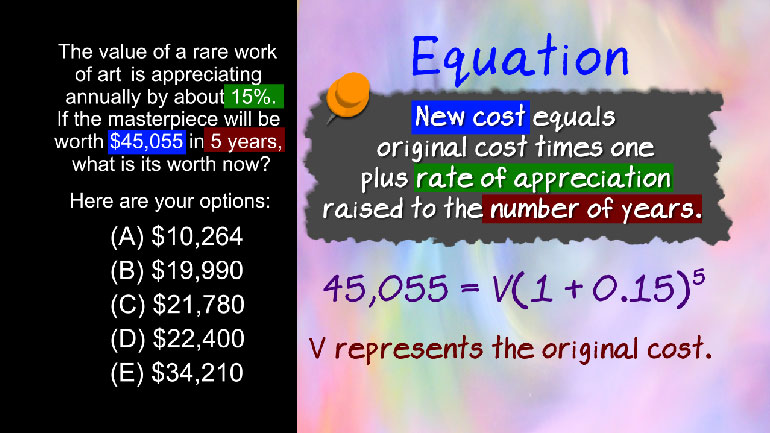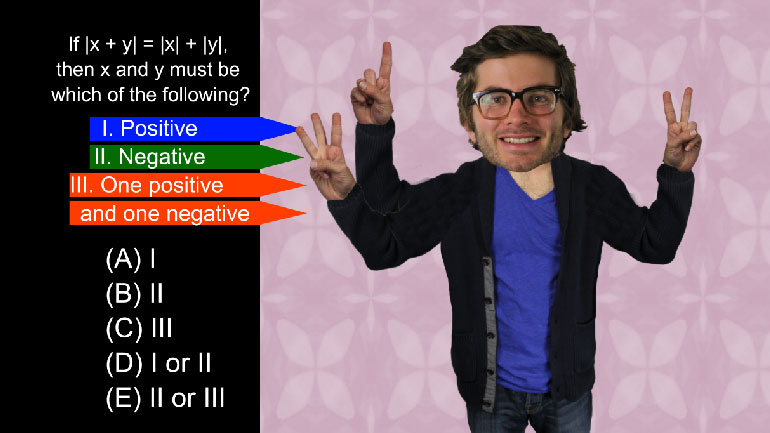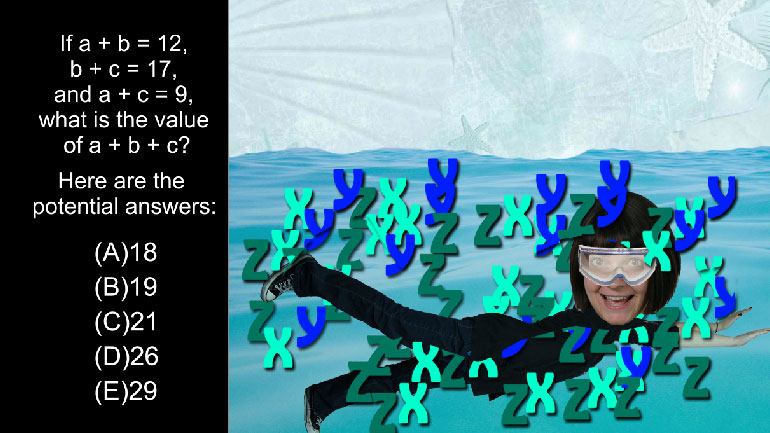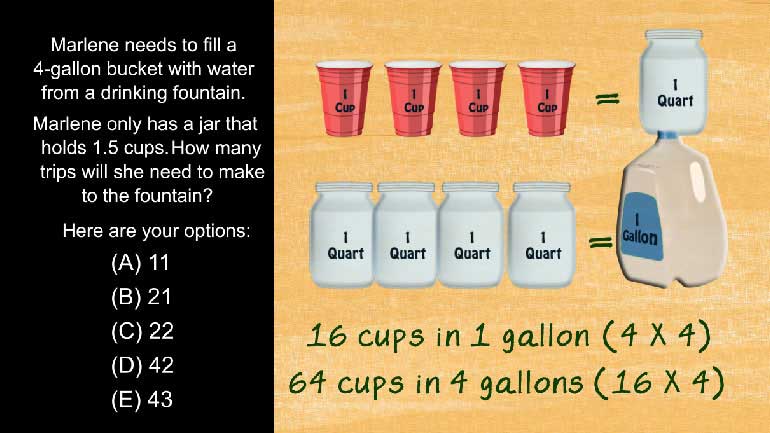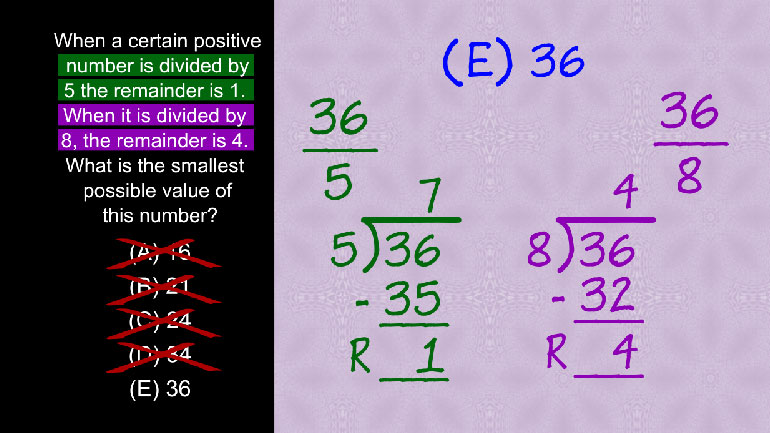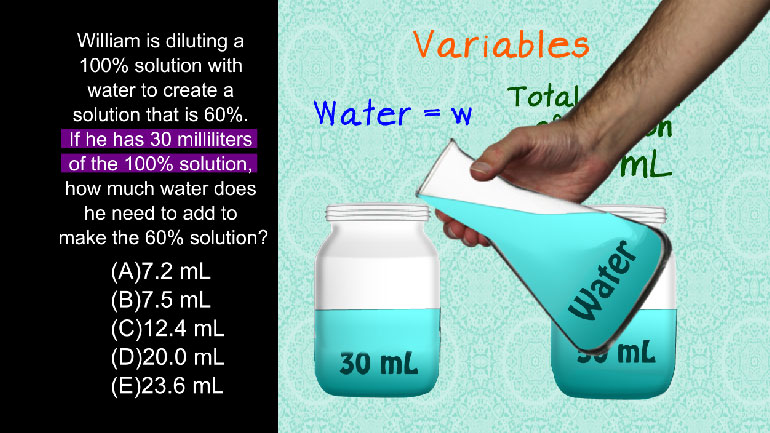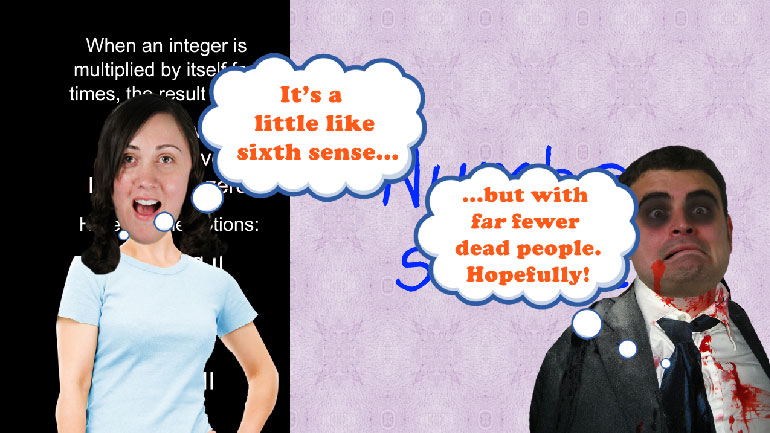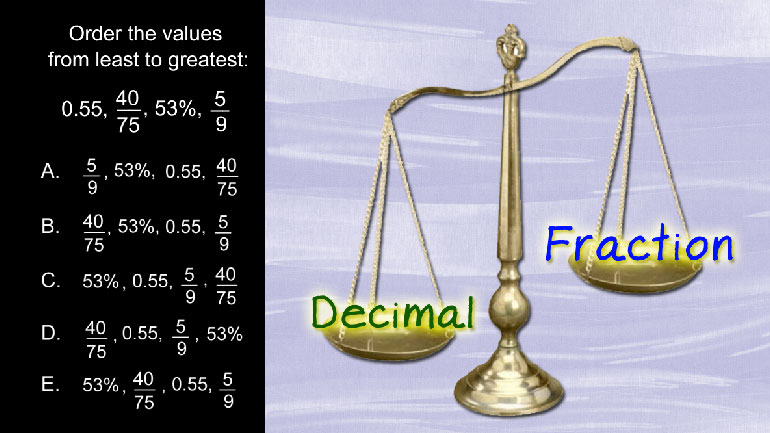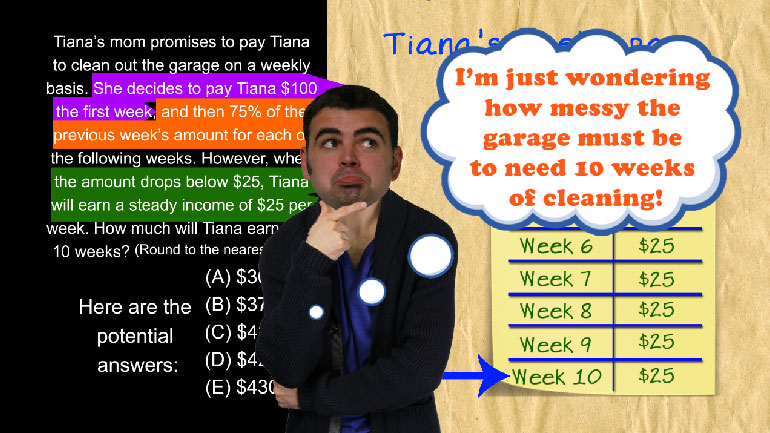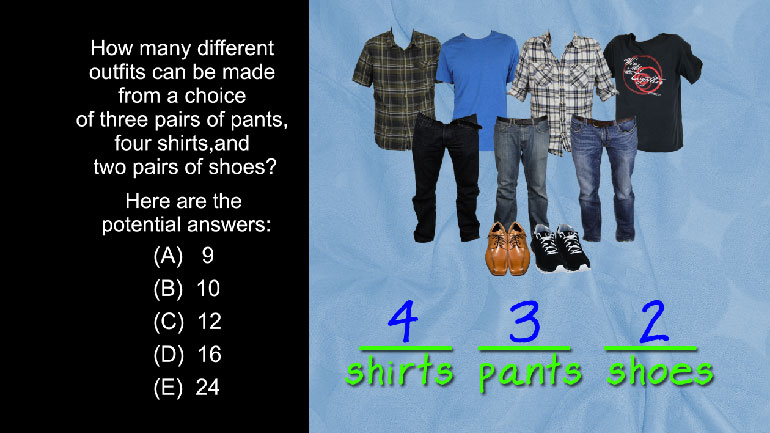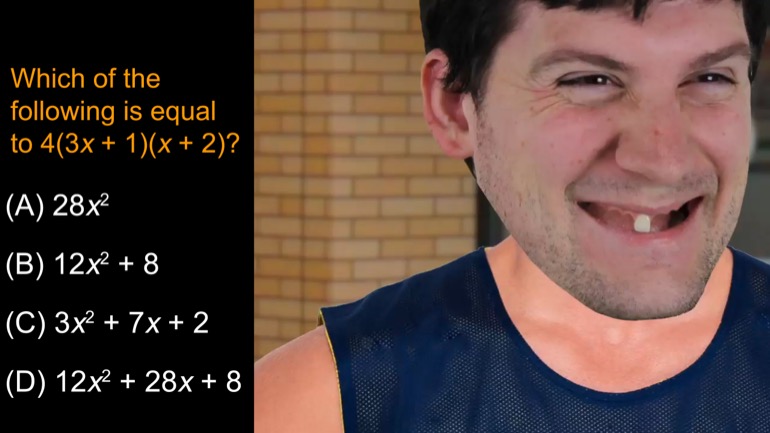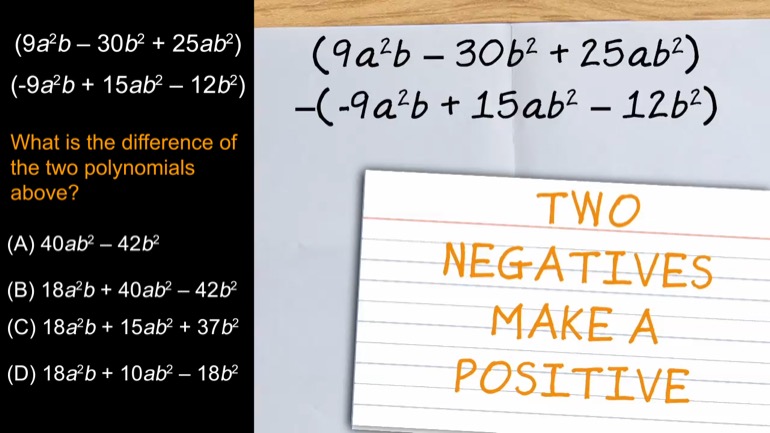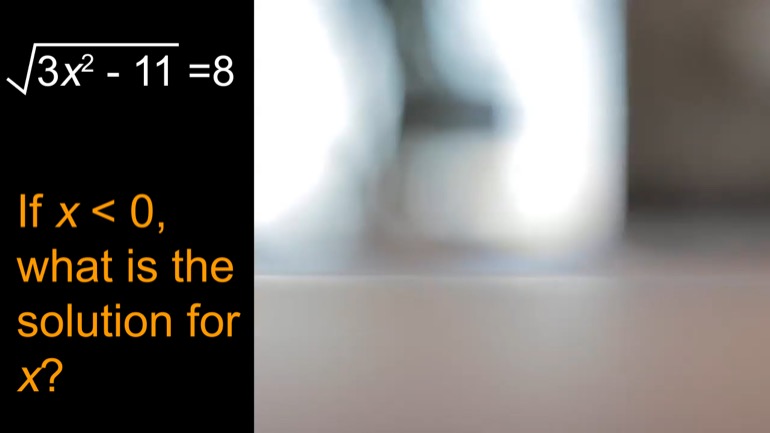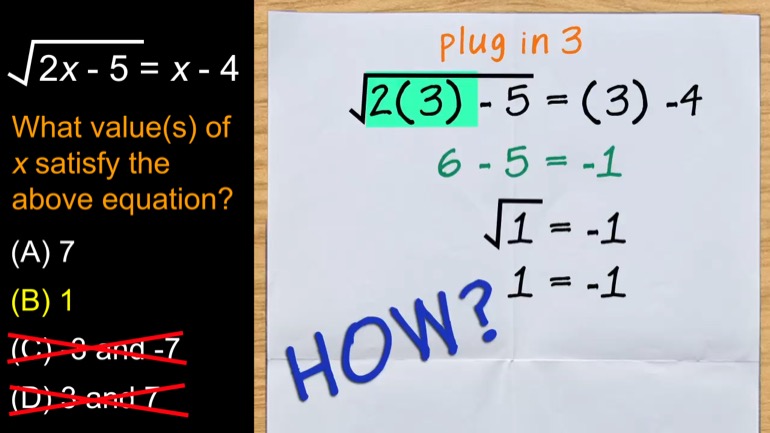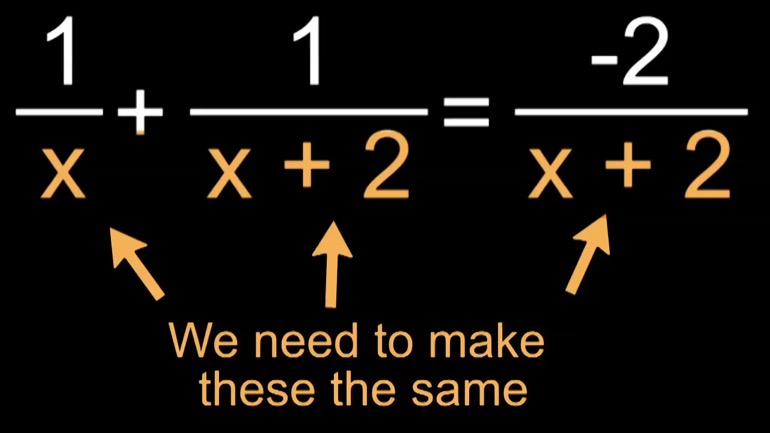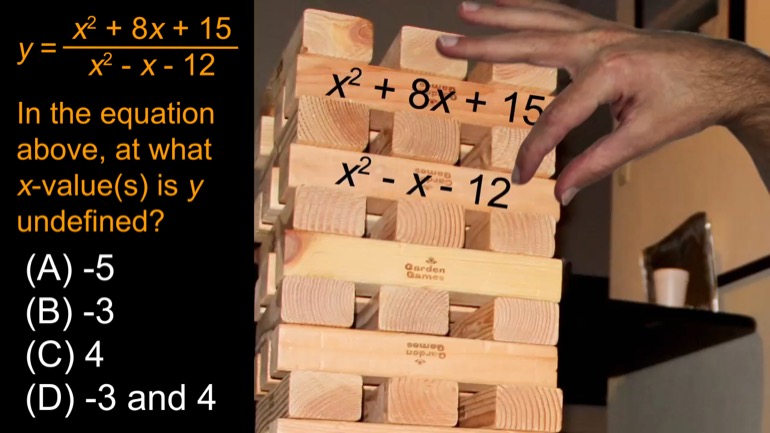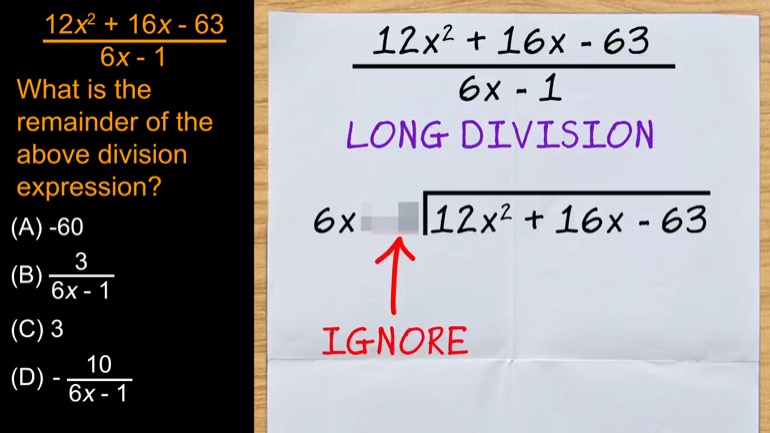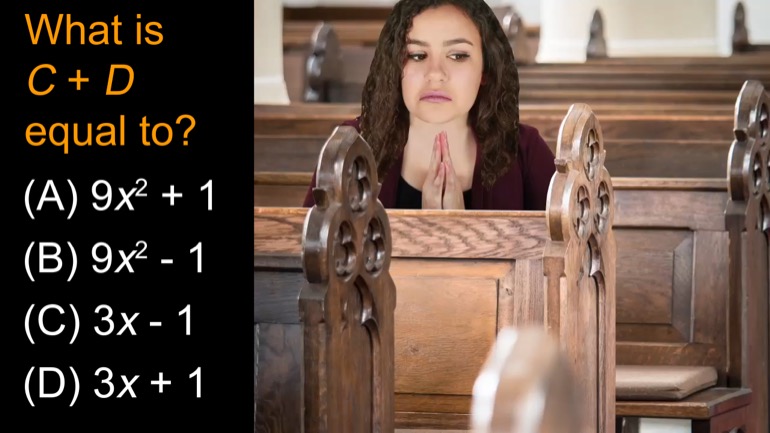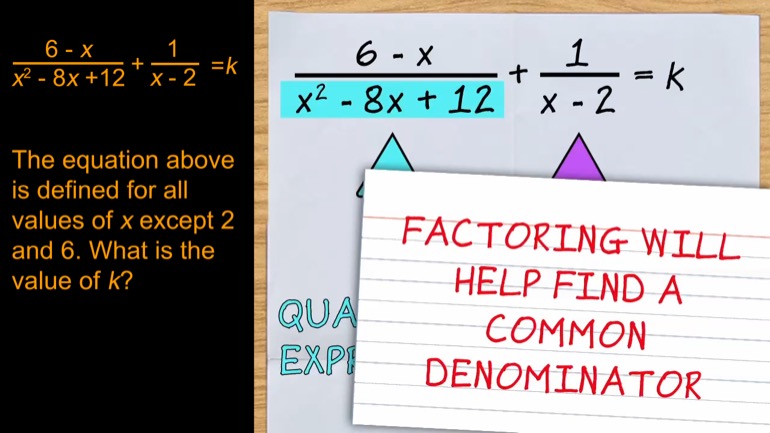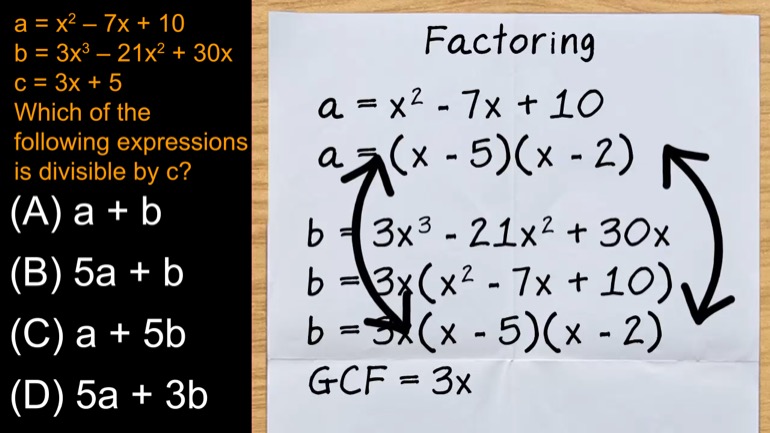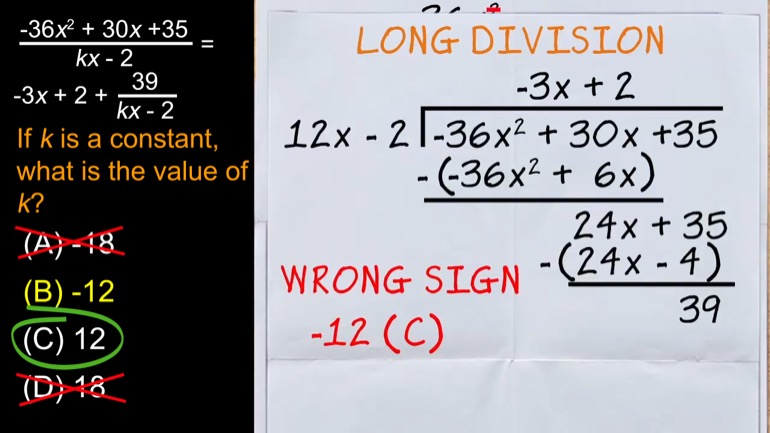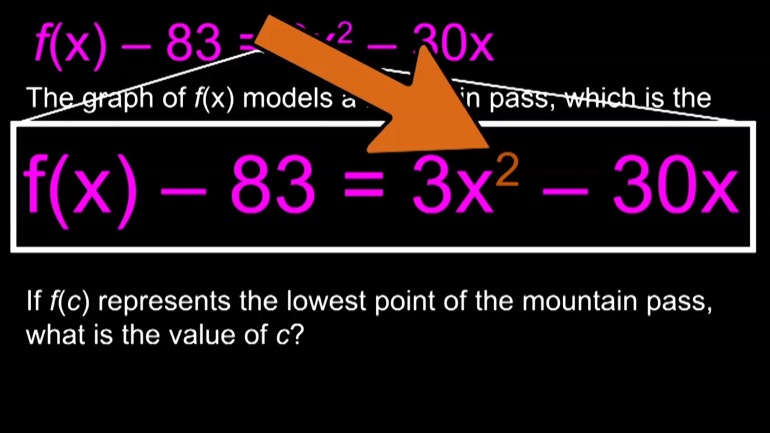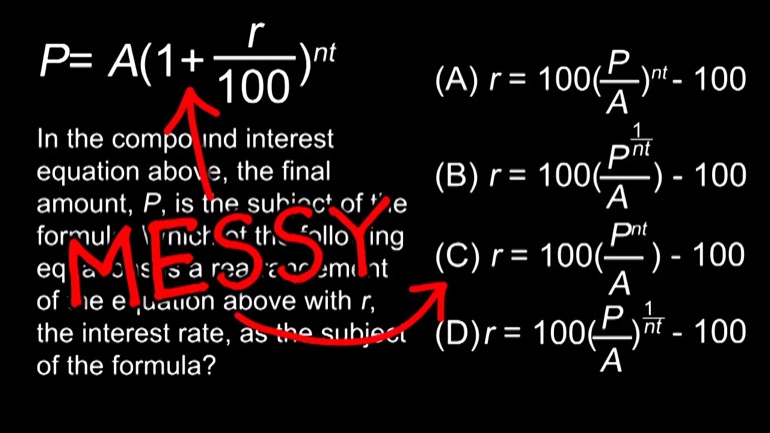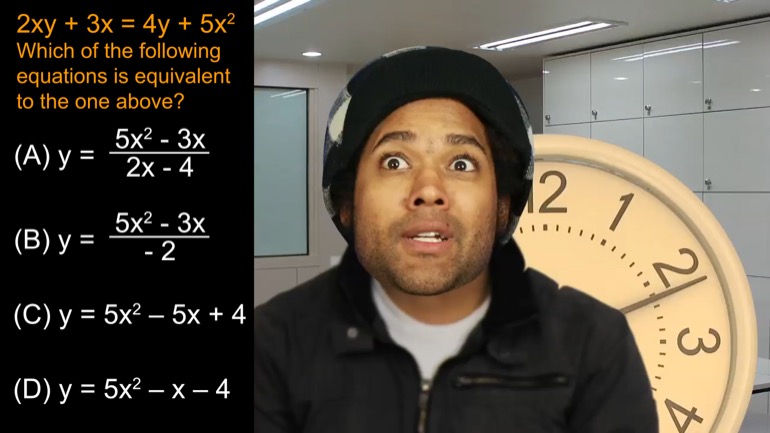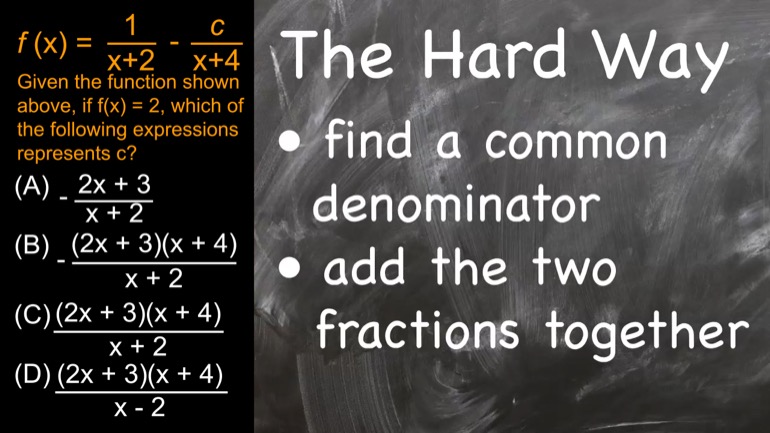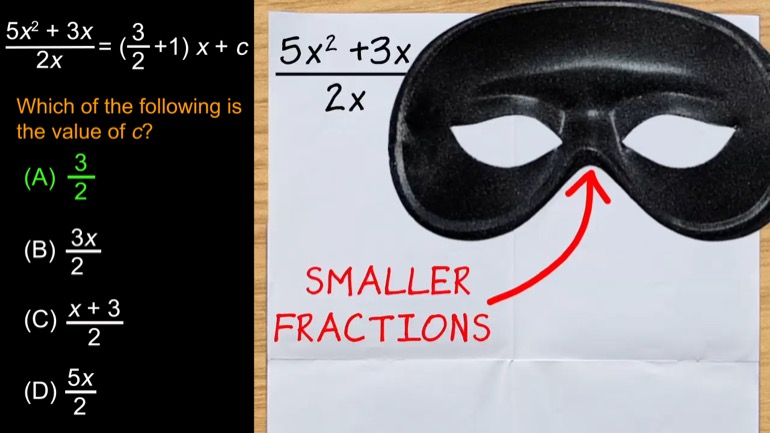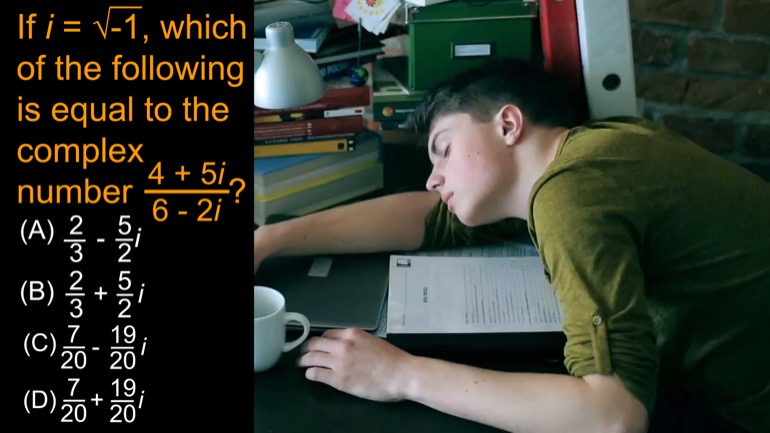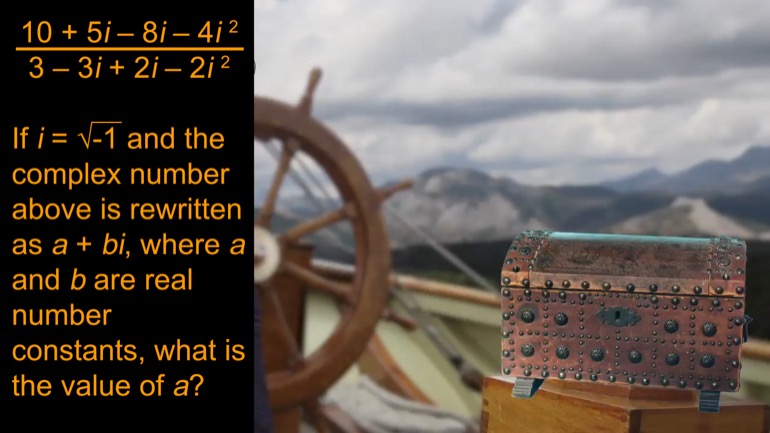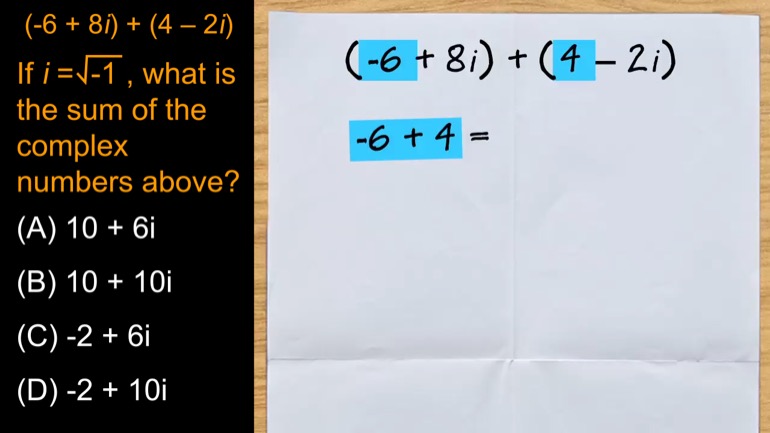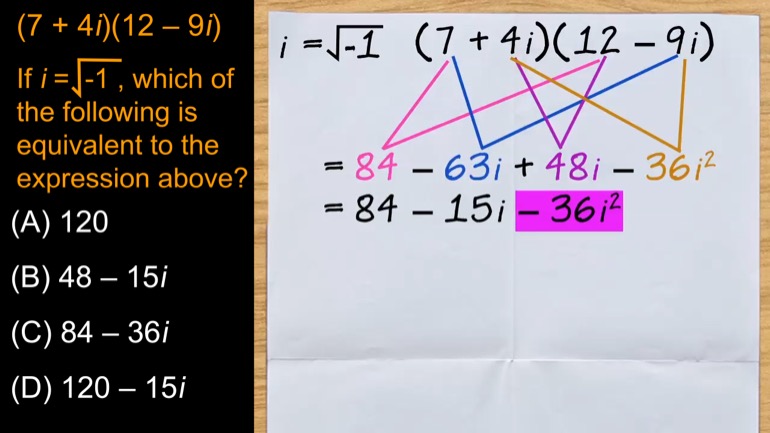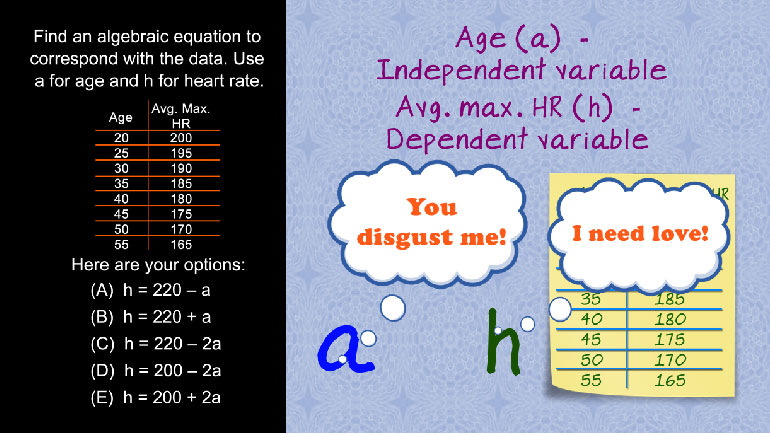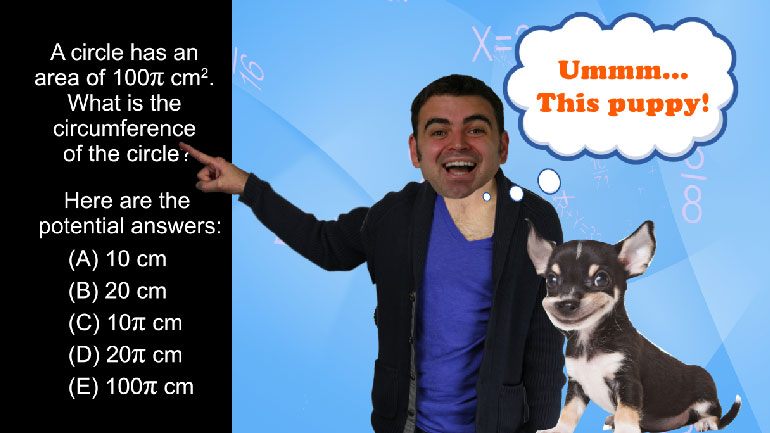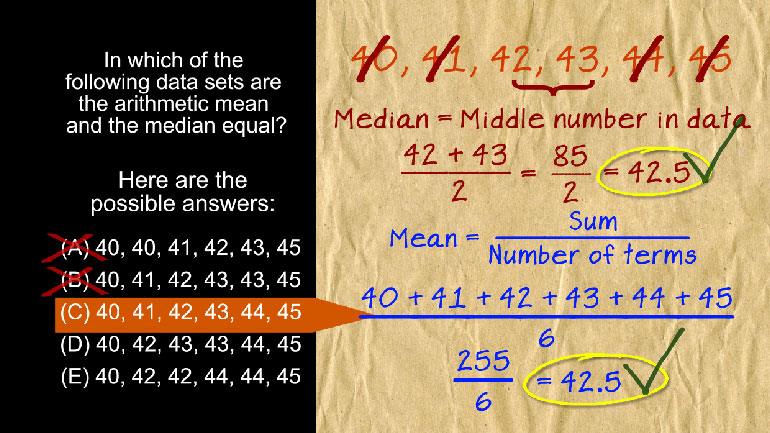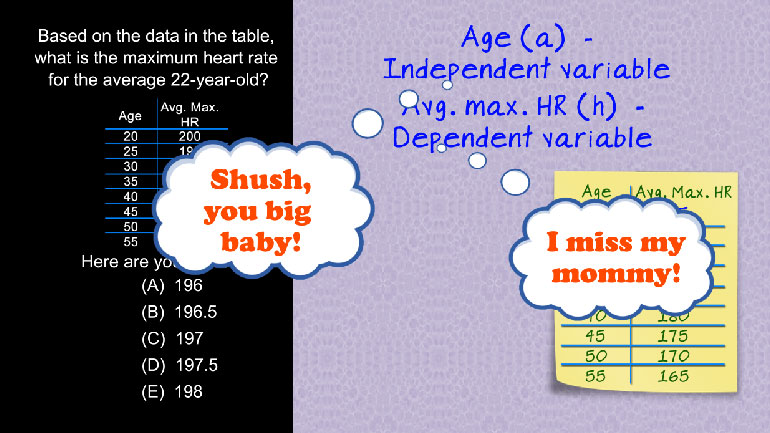ShmoopTube
Where Monty Python meets your 10th grade teacher.
Search Thousands of Shmoop Videos
Numbers and Operations Videos 64 videos
SAT Math 1.4 Numbers and Operations. Solve the equation.
SAT Math 1.1 Numbers and Operations. How many combinations of beverage and cereal can be made?
SAT Math: Finding an Equivalent Expression Using Complex Numbers 2 Views
Share It!
Description:
If
 , which of the following is equal to the complex number
, which of the following is equal to the complex number
 ?
?
Transcript
- 00:02
Okay say t shmoop er's If i equals the square
- 00:05
root of negative one it's A conceptual thing Which of
- 00:08
the following is equal to the complex Number four plus
- 00:11
five high over six minus two i this complex number
- 00:18
is actually a lot more complex iq ated than it
Full Transcript
- 00:21
looks wait that's in the world is anyway The strategy
- 00:24
here involves conjure gets both the numerator and denominator need
- 00:28
to be multiplied by the country get of the denominator
- 00:31
right So the denominators country it looks exactly the same
- 00:34
as the denominator except the sign for two i switch
- 00:38
is on ly the sign for the second term changes
- 00:41
and if you didn't show up for school toe learn
- 00:43
that this day Well then you're out of luck So
- 00:46
the sign for six days positive and that negative too
- 00:49
i becomes positive too I also that fraction more multiplying
- 00:52
by well doesn't change the overall expressions value because the
- 00:56
numerator and denominator are the same So we actually multiplied
- 00:59
by one So that gets us this equation for plus
- 01:03
five i over six minus two times six plus two
- 01:06
eye over six plus two i okay were conjugating in
- 01:10
the denominator The two i terms cancel out Kind of
- 01:12
like a difference of squares does and there's one real
- 01:15
term in a nice square term and because i squared
- 01:17
is negative one and pretty much by definition The denominators
- 01:21
simplifies to a real term so we just replace each
- 01:24
ice square term with negative one and then our equation
- 01:27
goes teo twenty four plus eight i plus thirty i
- 01:30
plus ten i squared over was that thirty six plus
- 01:34
twelve i minus twelve i minus four i squared so
- 01:37
we're just playing across all right and then we just
- 01:39
combine like terms and it gets us twenty four plus
- 01:42
thirty eight i minus ten thirty six minus clooney thinkit's
- 01:48
forty and then the final reduction fourteen plus thirty eight
- 01:51
i over forty There we go Well this fraction can
- 01:54
be split into two fractions because the denominator is now
- 01:57
one term giving us our answer of seven twentieth plus
- 02:01
nineteen i over twenty it's d well don't split the
- 02:04
fraction in the question into two different fractions like air
- 02:08
b did That strategy only works if the denominator is
- 02:10
one term which is not the case until we multiplied
- 02:13
by the conjugated So yeah it was a hard problem 00:02:16.08 --> [endTime] if you got it Q does
Related Videos
SAT Math 1.1 Algebra and Functions. Find an algebraic equation to correspond with the data.
SAT Math 1.1 Geometry and Measurement. What is the circumference of the circle?
SAT Math 1.1 Numbers and Operations. How many combinations of beverage and cereal can be made?
SAT Math 1.1 Statistics and Probability. In which of the following data sets are the arithmetic mean and the median equal?
SAT Math: Algebra and Functions Drill 1, Problem 2. Based on the data in the table, what is the maximum heart rate for the average 22-year-old?
